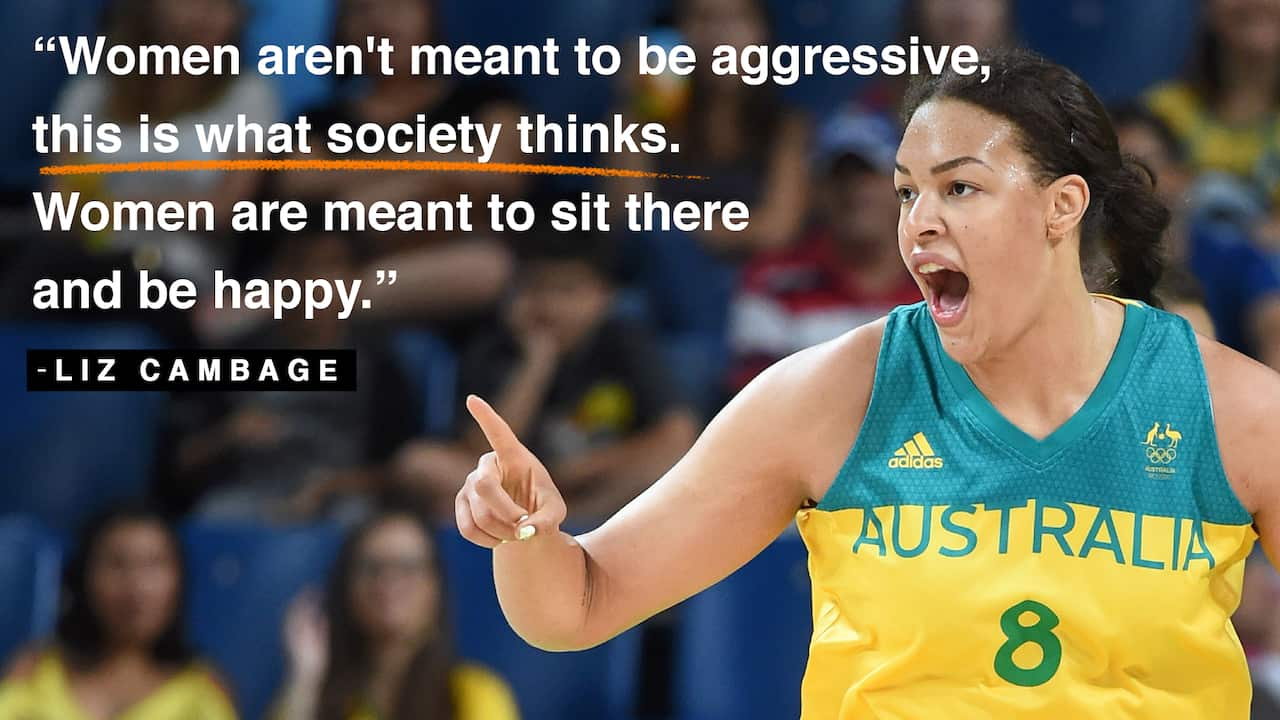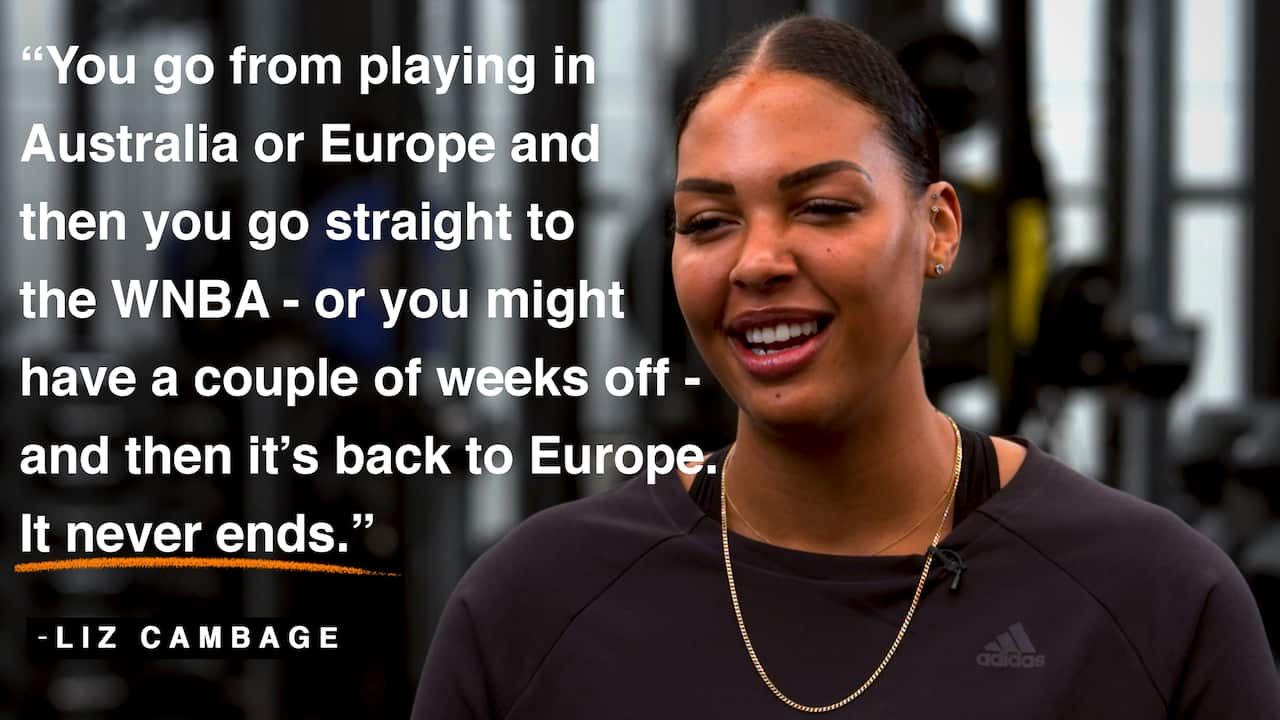Australian basketballer Liz Cambage has an Olympic medal, a Commonwealth Games medal and currently holds the WNBA single-game scoring record.
She is an athlete at the top of her game. Alas, she is a woman, which means she’s paid a fraction of what her male peers are paid...and chastised when she asks for more.

“I should be happy that I got to play in the Olympics, I should be happy I’m even in the WNBA.”
I shouldn’t be making noise that I want more.
But despite expectations, Cambage makes a lot of noise about the double standards when it comes to male and female athletes paychecks.

Cambage says many female basketballers feel like they must have the WNBA ‘on their resumes’, in order to make it to Europe - where the real money is.
In August last year, she caused a stir within the WNBA community, when word got out that she was considering not returning to her team, the Dallas Wings, for the upcoming season.
Her reasoning? European contracts pay more.
Cambage says change is well overdue in the basketball community. But her calls haven’t been so well received.
“The amount of messages and tweets and comments I get daily when ever I say something about changing things so I can make more money when I play my sport is insane,” said Cambage.
A widespread problem
Many sports are still suffering from a crippling gender pay gap.
There were no women on the 2018 Forbes highest paid athletes list.
#100, French basketballer Nicolas Batum, still took home $22.7 million: earning $4.7 million more than Serena Williams, the world’s highest paid female athlete.
The greatest wage gap exists in football, where in 2017, the highest paid male (Cristiano Ronaldo) earned US$89.5 million more than the highest paid female (Alex Morgan).
Australia doesn't fare much better.
The salary bill for the 181 players in the 2017-18 W-League football season was $2.2 million. It was reported that Socceroos star Tim Cahill was paid $3.5 million to play the 2016-17 season.
That’s just one salary for one player in the men’s league.
How do we fix it?
When it comes to the gender pay gap in sports, several arguments are often trotted out: women aren’t as popular as men and women aren’t as skilled as men.
However, like Cambage, female athletes across the globe are pushing back.
Just last month, the US women’s soccer team filed a gender discrimination class action lawsuit against US Soccer.
Their main argument? They play better.
The lawsuit states: “The pay for advancement through the rounds of the World Cup was so skewed that, in 2014, the USSF provided the (men’s national team) with performance bonuses totaling $5,375,000 for losing in the Round of 16, while, in 2015, the USSF provided the (women’s national team) with only $1,725,000 for winning the entire tournament. The (women) earned more than three times less than the (men) while performing demonstrably better.”
Basically - the women’s team won the World Cup, but earned less than half their male counterparts.
This is the same team that, in the 2015 Women’s World Cup final, tallied the largest television audience in United States history for any soccer game.
The lawsuit is still making its way through the US court system but if it’s anything to go by, Cambage is right about how to incite change. It begins with making noise.
Catch The Feed 8:30pm Thursdays and 5pm Sundays on SBS VICELAND . Connect with us on Facebook, Twitter and Instagram.
Through award winning storytelling, The Feed continues to break new ground with its compelling mix of current affairs, comedy, profiles and investigations. See Different. Know Better. Laugh Harder. Read more about The Feed
Have a story or comment? Contact Us

